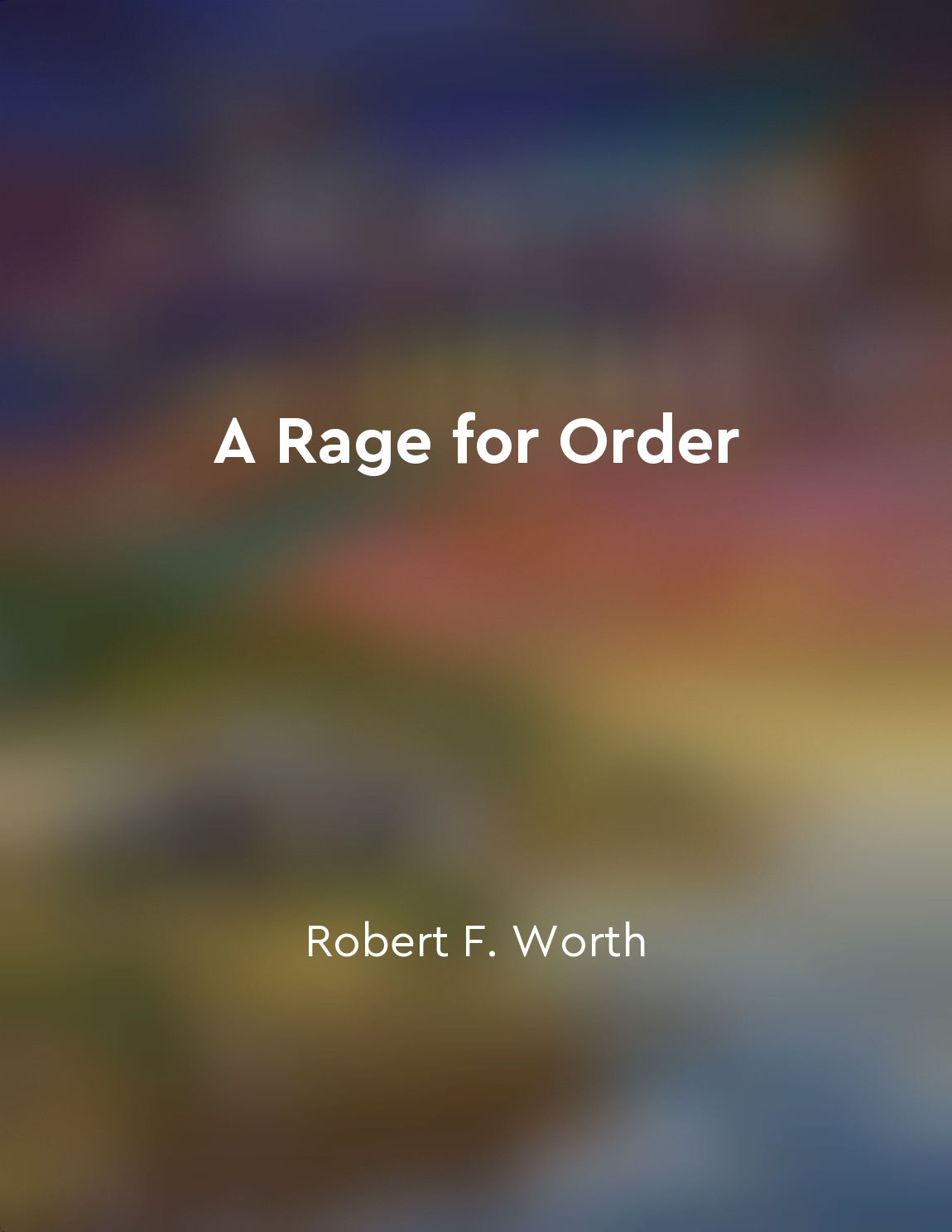Brutal crackdowns silenced dissent from "summary" of A Rage for Order by Robert F. Worth
The authoritarian regimes in the Middle East were adept at maintaining power through brutal crackdowns that effectively quashed any form of dissent. These crackdowns were not limited to simply arresting political opponents or activists; they also extended to the suppression of any form of expression that could be perceived as a challenge to the ruling order. This included restricting the freedom of the press, censoring social media, and monitoring online activity to prevent the spread of dissenting views. The goal of these crackdowns was not only to punish those who dared to speak out against the regime, but also to send a clear message to the rest of the population that dissent would not be tolerated. By instilling fear and creating a climate of intimidation, the authorities were able to silence opposition and maintain their grip on power. In many cases, the mere threat of violence was enough to deter individuals from speaking out, as they knew the consequences could be severe. The use of force and coercion to silence dissent was not limited to a specific country or regime, but was a common tactic employed by authoritarian leaders across the region. This shared approach to repression allowed these regimes to learn from each other and adapt their strategies to ensure they remained in control. The result was a pervasive atmosphere of fear and distrust, where even the slightest hint of dissent could lead to harsh consequences. Despite the brutal crackdowns and the overwhelming power of the security apparatus, there were still individuals who dared to defy the authorities and speak out against injustice. These dissenters often paid a heavy price for their courage, facing imprisonment, torture, or even death. However, their willingness to challenge the status quo served as a reminder that the human spirit is not so easily crushed, and that the desire for freedom and justice can never be extinguished. In the face of such repression, it is natural for individuals to feel powerless and discouraged. However, history has shown that even the most oppressive regimes are not immune to change. By standing up to injustice and refusing to be silenced, ordinary people have the power to spark a revolution and bring about a new era of freedom and democracy. The road ahead may be long and fraught with challenges, but as long as there are those who are willing to fight for what is right, there is hope for a better future.Similar Posts
Virtue signaling is a tool of manipulation and control
In our current cultural climate, virtue signaling has become a prevalent tool for individuals and groups to assert their moral ...
Individual autonomy is the antidote to tyranny
The antidote to tyranny lies within the individual autonomy of each person. When individuals are able to think freely, act inde...
Blind obedience weakens the people
The idea that blind obedience weakens the people is a central theme in the text. The author emphasizes that when individuals un...

ISIS emerged as a formidable threat
ISIS did not come out of nowhere. It was rooted in the same poisonous soil that had nourished Al Qaeda a decade earlier, and in...
Totalitarian regimes aim to eliminate individuality and dissent
Totalitarian regimes operate on the premise that individuality poses a threat to their power. The existence of individuals with...
Encounter different cultures and beliefs
In the world of a traveler, encountering different cultures and beliefs is like stepping into a new reality. It is a process of...
Critique and debate are essential for social progress
The idea that critique and debate are crucial for societal advancement is a central theme in 'The Open Society and Its Enemies'...
The isolation of individuals creates an environment ripe for totalitarian rule
In times of political and social turmoil, individuals often find themselves isolated from one another. This isolation is not me...
